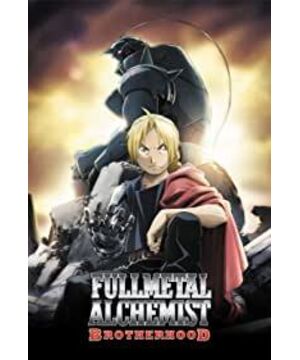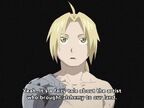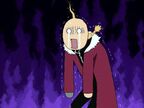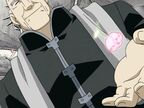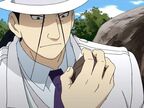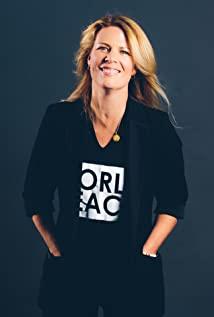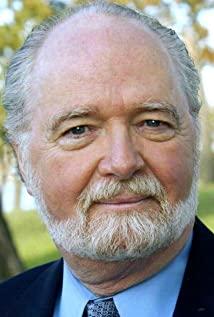Reprint Statement: This article is reproduced from the black and white comic culture.
When the little girl (three years old) who lived next door knew that I was a cartoonist, she said to me with a look of anticipation,'Are there any princesses drawn? 'Little girl... I'm sorry, I always paint some ugly uncles. "(By: Hiroshi Arakawa)
Arakawa Hiroshi is a rare female manga artist among young manga artists. Fans like to call her "Aunt Niu" because her self-portrait is a cow. Hiroshi Arakawa was born in a small farming family in Hokkaido. The main business of the family is raising dairy cows and growing potatoes. In her childhood, Aunt Niu was taught by her father that “if she didn’t work, she would have no food”, so she had to help her family work hard in exchange for food since she was a child. Aunt Niu made her debut as a cartoonist at the age of 25, and she lived a farming life in Hokkaido. The farm work is hard and heavy, but healthy and fulfilling. This long life of farming has cultivated Aunt Niu's optimistic and strong character, and also created her inseparable bond with the natural land, and this bond has deeply affected her comic style. Mr. Arakawa’s painting style is very inclusive, true, natural and unpretentious, and always makes people feel a kind of warmth like the motherhood of the earth, or a kind of straightforward gentleness like a peasant aunt (laughs). For example, when someone asked her why all her characters have a round bun face, Aunt Niu replied solemnly: “If you draw too thin, it’s not as pitiful as if you’re not full!” “Springtime” ! This is the season to make the people's blood boil! At this time, we will drive a farming machine called a'rotary scarifier' to spread the compost and the dug field after the harvest last autumn to make a uniformly crushed soil. The work of leveling and stacking. From the end of April to the beginning of May, I will always drive the rotary scarifier to work. The field leveled before planting looks very comfortable. The soil is soft and the surface is flat. Yes, it looks like ——A huge canvas with a width of several hectares!" "35 liters of water, 20 kilograms of carbon, 4 liters of ammonia, 1.5 kilograms of lime, 800 grams of phosphorus, 250 grams of salt, 100 grams of saltpeter, 80 grams of sulfur, 7.5 grams of fluorine, 3 grams of silicon, 5 grams of iron, and an appropriate amount of fifteen elements. Calculated by a standard adult, this is the constituent material of the human body. By the way, these constituent materials can be brought to the market with a small amount of money. If you go up there, you can buy everything. It shows how worthless human beings are."
The law of "equivalent exchange" is the most basic and important principle of the science of "alchemy" in "Steelmaking". "In order to obtain something, it needs to be exchanged at the same price." "All are one, one "For the whole" is the law and law that cannot be violated in the operation of everything. Synthetic Animals is the most impressive section in Steelmaking, and it is also the psychological shadow of many readers. In the 03 version of the animation, original plots were added, and four episodes of plots were filled together, and the feelings were brewing to overflow. Not long ago, Nina also had fun with the Edric brothers, went to Hughes's house to witness the birth of Mrs. Hughes, and cheered for Edward's national alchemist exam. Happy times seem to last forever. In a blink of an eye, she was made by her own father into a monster who could speak human words. The moment was so cruel that I didn't want to face it, I just wanted to escape quickly. Newton once exclaimed: "I can calculate the orbits of celestial bodies, but I can't calculate the madness of human nature." Xiu Tucker, "The Alchemist of Death"-the person who connects life, what an ironic title. Synthetic Beast is an extremely important character in the entire comic, both in terms of plot and theme. Until the final words, when Edward faced the truth, he did not forget to say that he was "just an ordinary human being, an ordinary human that can't even be saved by a girl turned into a synthetic beast." Nearly ten years have passed.
——Edward Elric Obviously, the author wants to express to others through the synthetic beast Nina, or what he is thinking about, and in her autobiographical comic "People and Nobles", there is a record of a synthesis Beasts have inextricably linked stories. When Aunt Niu was still in high school, there was a calf in the family that couldn't stand up after he was born. The Arakawa family hired a veterinarian to treat it, but because the calf injured its spine at birth, the doctor had nothing to do. The kind-hearted mother Arakawa and Aunt Niu did not give up on the calf, and they tirelessly massage the calf every day to help it recover. But the Mavericks never stood up. Later, the doctor suggested that Arakawa’s mother cede the calf to his research institute. He wanted to use this calf as a research object for rare symptoms. This might help more lives, but at this time both Arakawa mother and daughter Hesitated. As we all know, livestock is an economical animal. When it is not helpful to the management, if it is not dealt with as soon as possible, it will only waste manpower and feed costs. Aunt Niu knew this since she was a child. But what kind of feeling is this? If this calf is taken by a doctor for research, if a cow with the same symptoms is born in the future, they will hopefully heal, and losing one life can save more lives. But becoming a laboratory animal means that it will be treated like this and that... In the end, Arakawa’s mother still did not decide to let the doctor study the calf, but asked the doctor to find a livestock processing plant to give it a happy life. On the same day, the people at the processing plant arranged for a truck to come and take the calf away, because it was thanks to one day's money to keep it for a day. The reality is a bit cruel and harsh. The calf was taken away along with the sick and accidental cattle. Until the day before, Aunt Niu massaged it in the morning and evening. Aunt Niu has experienced this kind of thing countless times since she was a child, and every time she wondered whether this kind of thing is right; human progress is based on the conquest of other lives, and nature's law of the weak and the strong is cruel but unshakable. So, what is the so-called meaning of life, or the dignity of life? All things in the world, only humans are aware that no matter the material resources such as vegetation, animals, mountains and rivers, water sources, including their own kind, they can be sold at a clear price; the so-called war, thought, art, character, and more abstract things, humans There are ways to express it with a precise number, trade it with money, or exchange it with things of the same value. Economic consumption activities that have continued for tens of thousands of years have created an unparalleled and splendid civilization in human society. There is nothing wrong with these. But sometimes if I think about it, I always find something annoying Very impatient, incomprehensible feeling. Even if I know it deeply, there will be no answer to this question. Therefore, people always pray to God. The synthetic beast was killed by Skar, and that picture was more like a ritual. Perhaps, Mr. Arakawa brought his shadow onto Skar. When Skar decomposed into a beast, just like when Arakawa-sensei personally sent the calf to the animal handling cart, he violated the will of God but still prayed to God.
"I am the being called the world by you. Either the universe, or God, or truth, can be all or one, and I am also you." The door of truth, as the name implies, through this door, You can watch the truth. What is the truth? In the manga, Arakawa gave a setting that seems very mysterious at first glance-"The existence called the world, or the universe, or the god, is also the truth, which can be the whole or the one, and I, too you". Until the end of the story, Aunt Niu did not specify what the white villain named "Truth" in her novel represents? Aunt Niu, who has always been a rigorous narrative, did not set the "truth" in rigid rules, but showed a vague existence. From the shallower to the deeper, the clue used by the protagonist in the comics to pursue the truth is the "sage's stone", then we will also explore the truth from the "sage's stone". "The sage's stone may be a kind of high-energy substance that gathers the soul", which originated in ancient Greece and Egypt. The base metal originally contained precious metals (or the possibility of being "upgraded" to precious metals), and the final result (the gold pursued by the alchemist or the sage's stone) was contained in the original first substance. Aristotle believed that all material existence in nature has its purpose. For example, the purpose of a caterpillar is to become a butterfly, and the purpose of nature itself is to become a "complete existence." The improvement of material is to help nature move towards "completeness", and at the same time to improve oneself in the process, and get liberation from the human world-to improve material to "perfect" is also a kind of "liberation." In the final chapter of the story, the "little man in the flask" consumed the souls of the 50 million people of the Amestris nation through the formation of the land, opened the door to the truth, and pulled God into his body. Some people say that this is a collection of the knowledge of 50 million people, and this huge amount of information is God. But this statement is obviously incorrect, because no matter how wise human beings, no matter how alchemy or science develops, the two eternal questions-the meaning of "soul" and "death", remain unknowing their mysteries.
In fact, God is man himself. The mystery of truth is like the mystery of the soul. The power of the soul is powerful and affects each other. When many souls gather together, there will be emotional "communication" called love, hatred, jealousy, etc. These "communication" affect the "relationship" between people, and then produce changes, giving birth to the so-called "communication". history". History seems to be an accidental product manipulated by gods, but it is ordinary human beings that make up history. Human beings can rely on their own struggles to fight against fate to some extent, and this will profoundly affect the lives of others around them. This kind of seemingly indispensable to follow the trend, and as if moving towards an inevitable dramatization process, the man who manipulates all of this is God, and it is also human beings themselves. In the animated version, the voice of "Truth" is very cleverly arranged as the voices of all living beings in the world-Truth is the resonance of all human souls, a collective and thoughtful community, that is, "And I, It's you too". Think about it this way, the villain in the flask was born of human blood; used human souls to obtain the body; made the sage’s stone hidden in the ground to suppress the power of nature; separated his feelings and created the "seven deadly sins" claiming to be his father to imitate the human group Making a family-but despising human beings, despising human feelings, wantonly trampling on human souls, and pursuing power for complete existence, this is an ironic thing. "Just like what people said before,'facts are more miraculous than novels', when I watch documentaries, I often cry and feel like,'The story of creation is really no better than this kind of thing'. I put this When the matter was mentioned to the senior cartoonist, the other party said to me,'The story created can create hope in the story that there is no hope'. After listening to this sentence, I feel that it has deeply moved my comic spirit. "-Hiroshi Arakawa
In the end, the villain in the flask failed. It was defeated by the humans it despised, by its own arrogance, and even more by its own inferiority. It has wisdom beyond humans, and his character is more sophisticated than humans. Its birth is meaningless, it is purely a man-made man unintentionally created, but it adheres to an instinctive obsession and wants to become a "complete existence." In fact, it will succeed soon. The villain in the flask has separated all the human weaknesses (seven deadly sins) in its soul, absorbed 50 million human souls, gained inexhaustible time and power, and detached itself from the cycle of life. But it is so inferior—it chooses to rely on the sage’s stone to steal its divine power, but even if the sage’s stone can ignore the principle of equivalent exchange, it can get eternal time and power, but it is made by the soul of others. Something that belongs to others. It is as if a thief has stolen a high-level product and put it on himself, and he feels noble. Using the power of others to hold on to the so-called "god" will not make himself great, just like the one behind it. Like the door of truth, it's empty. The villain in the flask is nothing but a wise little thief. Whether the little man in the flask was born of human blood, he still couldn't break free from the shackles of human nature. It and its "children" (seven deadly sins) sang the pride of humanoids, but when they were in danger, they survived by the souls of such inferior creatures. They are not beautiful. The father of the world is so ugly after being backlashed by the'god'. When you kill, you must be in awe of life. When you are compassionate, you must stay awake to the evil. The sins were as serious as Skar, and he survived. This murderous avenger awakened and repented at the end, but failed to use his death to write off those blood debts. He survived, and for the second time, Death's jagged face showed a smile of rejection again, not seeing whether it was a blessing or a mockery. It is always harder to survive. Living, he is destined to not be able to write off, he must face his sins, and he must take responsibility. Fortunately, the content of the tattoo on his arm is no longer just decomposing and destroying.
Master Selim, the first and strongest man-made, survived, the most "arrogant" became the weakest and most humble, and then he started from scratch as the only survivor of the seven deadly sins when he grew up. The deaths of the rest of the seven deadly sins seem to have their own destiny. Lust burned to death, angry Wrath died of revenge, gluttony Gluttony was eaten by others, and sloth Sloth ran to death. The most impressive are Greed greed and envy of Envy's death. Greed is just like his name. He is destined to be the most greedy, insatiable, money, woman, status, power, and everything he wants to own. He protected Yao Lin with his "first and last lie" and gave it to his father. A crucial blow. At the last moment, he let go of his arrogance and called Yao Lin, Aide and other partners "friends of the soul." The most greedy and contented person in the world finally learned to be contented and give up, and died of contentment. He said: "Enough is enough, goodbye." And Envy, is the most controversial character in the steelmaking comics. The order of the seven deadly sins in religion depends on the degree of violation of love. The sequence is: arrogance, jealousy, rage, laziness, greed, gluttony (gluttony) and lust. But in this manga, arrogance has feelings for humans, and the humanoid who hurts humanity the most, is the most despicable, and also despises human beings' pretentiousness, has become the embodiment of jealousy-Enwei. In "Dante's Divine Comedy", the explanation of jealousy is: "Love of one's own good perverted to a desire to deprive other men of theirs. "(The love for one's own merits degenerates into a desire to deprive others of their merits.) He disguised himself as a soldier of the Armestris Army, shot and killed civilians of Ishvar, provoked Ishvar's annihilation war, and carried out genocide. He disguised himself. As Hughes's wife, Hughes was assassinated in desperate despair. He took pleasure in human hatred, crying, and cannibalism. He is the monster who likes to touch the bottom line of human emotions the most. And he is also the saddest creature. He despises humans as ants, but his prototype is an ugly bug, covered with disgusting monsters full of rotting human corpses; he has great power, despises the fragility of humans, but is always defeated by humans. Humans are better than artificial humans. Weak, will be hit, and feel frustrated. But even if they deviate from the right path, are knocked down by others, and lose their souls, they will continue to struggle against each other and support each other. In fact, Enwei is jealous of human beings. He seems to despise human beings in every line. , But didn't notice that he had the word human in every sentence. "If you give up the small one, you will get the big one. If you think about it, you will understand, but in this way, human beings will not be able to do anything. "But in the end, you humans are like this. "Humans are really stupid, fighting for these silly things, are they humans after all." "Huh, weak humans!" "Will Enwei be jealous of humans!" "In the end, Enwei was ashamed of, like a piece of rags, the humans he despised, and things like rubbish in his eyes, completely defeated. What is even more shameful is that he should be understood by these rubbish-like humans. Jealous of others. The guy who killed himself eventually killed himself. Perhaps, the life born from the negative thoughts of human beings, it is sad to be born. The world has no distinction between justice and evil, noble and evil, morality and responsibility, but it is all human beings. Human beings are really self-willed, established on their own terms. "I will definitely come back to pick you up. You are waiting for me, waiting! ! " "Humans are really stupid, fighting for these boring things, they are humans." "Huh, weak humans!" "Will Envi envy humans!" The final ending, Envi shameful, like A piece of rags, a human being he despised, and a rubbish-like thing in his eyes, completely defeated. What's even more shameful is that he was actually understood by these trash humans. The guy who was jealous of others eventually killed himself. Perhaps, the life born from the negative thoughts of human beings, such as artificial humans, is sad to be born. The world originally had no distinction between justice and evil. The high and low life, morality and responsibility were all established by human beings on their own initiative. Human beings are really self-willed. "I will definitely come back to pick you up, you are waiting for me, waiting for!!" "Humans are really stupid, fighting for these boring things, they are humans." "Huh, weak humans!" "Will Envi envy humans!" The final ending, Envi shameful, like A piece of rags, a human being he despised, and a rubbish-like thing in his eyes, completely defeated. What's even more shameful is that he was actually understood by these trash humans. The guy who was jealous of others eventually killed himself. Perhaps, the life born from the negative thoughts of human beings, such as artificial humans, is sad to be born. The world originally had no distinction between justice and evil. The high and low life, morality and responsibility were all established by human beings on their own initiative. Human beings are really self-willed. "I will definitely come back to pick you up, you are waiting for me, waiting for!!"
A short story in the appendix of the comic book 14. Not long after Al was born, a new Al was added to the Elric family. The mother who only looked at Ed before had to allocate more time to take care of Al. Over time, Ed couldn't help but start to be jealous, bullying Al from time to time. After seeing this one time, the mother angrily rebuked Ed, "You are your brother, you should protect your younger brother, and apologize to Al!" Ed still loses his temper and ignores his mother. He feels that his mother is partial and her mother has no choice but to help. 'S walked away. It happened that Dad Hohenheim was by Ed's side at this time, and Ed complained to his dad. "Mom always says,'Because you are the brother, so you have to be patient.' Mom must hate me very much. She doesn't love me at all." Unexpectedly, Hohenheim punished Ed instead, punishing him to carry a heavy bucket and telling him to "before I say yes, stop obediently!" Of course, Ed gave up soon." It’s so heavy, it’s impossible for me to hold it all the time!" "So that’s the case, you will give up soon. That thing (bucket) is as heavy as a baby. When you were born, it was almost as heavy, Dolly. Ya’s (mother)’s belly has been bearing this weight for several months, but your mom always carried that thing and protected him until you were born." "If she hates you, she won’t go there at all. Doing such a hard thing, so don't say she doesn't love you anymore." Father's indoctrination taught him two brothers who were upright and strong. The two brothers support each other and move forward. Their journey is to pay for their sins. After witnessing countless life and death, and after countless growth, they agreed on a very naive but noble principle-not to kill other people's lives, not to use the sage's stone. When Alphonse used his soul as the "toll fee" to exchange for his brother's right hand, I couldn't help but feel nervous about how charity would bring back Al's whole person-body and soul-while insisting on not using the sage stone. Down. Although "Steel Refining" is an out-and-out boy comic, because this story is written by Aunt Niu, who has always been stubborn and cruel, what will happen in the end is really a bit worrying. After Al exchanged his soul for Ed's right hand, of course Ed would definitely find him back. How can such a gentle and strong child be sacrificed? In contrast, what about Charity? If he sacrificed his life for his younger brother, it would be magnificent to burn to ashes, but that would not be the Elric brothers. As the colonel said, "He is well aware of the horror and despair of being left alone," he never wanted his brother to encounter that kind of situation.
So, what else can he give to return Al's whole person? In order not to violate the vow he made with Al, he didn't even want to use the sage's stone, let alone sacrifice the last bit of his father's life. The price he paid was to bid farewell to the truth and return his ability to use alchemy. The truth that was costed 50 million lives by the villain in the flask, and was still inaccessible, was countered by Edward's genius prank. Truth couldn't help but be astonished, and then laughed again, and he was simply defeated in this way. The brothers paid too much for the truth, sacrificed too much, and when they gave up, they were so happy and at ease. Abandoning the truth, Ed has the courage and self-confidence that far surpasses the villain in the flask. There are still many uncertain and difficult things in the future, but Ed who has lost his strength still has trustworthy companions and will still be brave. Be strong to travel. In the end, Al even broke the principle of equivalence exchange, "It is not 10 to pay back 10, and if you receive 10, you must add your own 1 to 11 copies. Although it is small, this is a new rule that we have found. Although, it needs to be proved later." The so-called truth was so easily broken. Those who break the truth are not the strong with the power, but the devout and small believers. This may be the cold humor of Lord Truth that is not easy to understand.
"It is meaningless without a lesson that is accompanied by pain. Because if you don't sacrifice anything, you can't get anything. But when you endure this kind of pain and overcome it, you won't lose. A tough heart for anything, yes, a steel tough heart." —Edward Elric
View more about Fullmetal Alchemist: Brotherhood reviews


